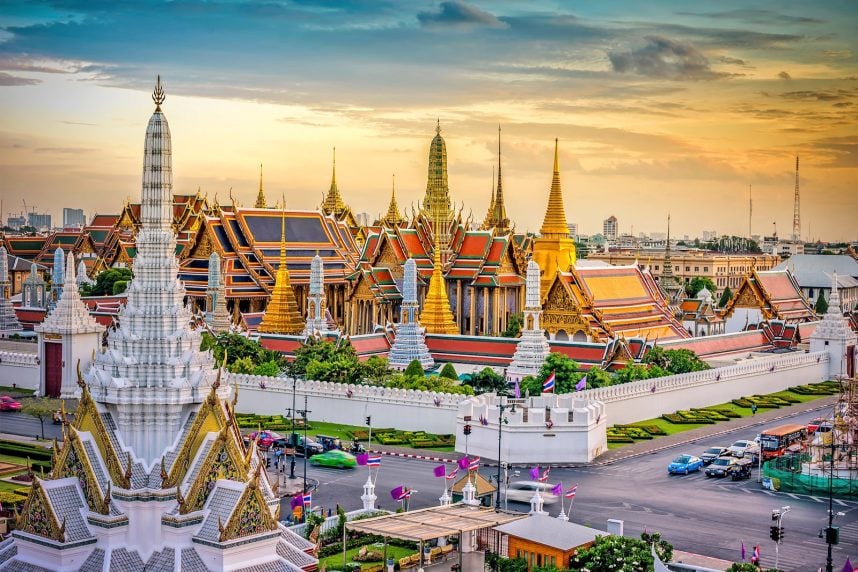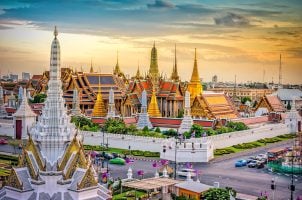Thailand Wants to Expedite Casino Process, but US Operators Might Not Like Regs
Posted on: June 6, 2024, 10:07h.
Last updated on: June 7, 2024, 08:53h.
Thai Prime Minister Srettha Thavisin reportedly wants policymakers and the Ministry of Finance to accelerate the casino regulatory process there so that he can approve gaming venues, but some analysts fear the country’s regulations could be off-putting to major US operators.

The Bangkok Post recently reported that five locations in Thailand have emerged as likely homes to the country’s first gaming venues. Those consist of two in the capital city of Bangkok, and one each in the Eastern Economic Corridor, Chiang Mai, and Phuket.
One of the primary reasons Thavisin is pushing the Ministry of Finance and lawmakers to get a casino bill to his desk as soon as possible is the hope of potentially beating Japan to the integrated resort punch. The hope is that if casino gaming regulations are approved in Thailand over the near term, construction on the first venue can commence as soon as possible, potentially paving the way for it to open before the expected 2030 debut of MGM Osaka.
How Thailand’s Casino Landscape Could Look
As speculation regarding Thailand becoming a gaming hub increased over the past couple of years, so have rumors pertaining to which gaming companies would be interested in doing business in the Southeast Asian nation.
That list includes Las Vegas-based behemoths Las Vegas Sands, MGM Resorts International, and Wynn Resorts — all of which have Asian footprints by way of Macau. Sands also runs one of Singapore’s two integrated resorts. However, some analysts believe Thailand’s gaming regulations could prove inhospitable to US operators.
This market is too early in the process to gauge if Wynn could eventually be involved, but at present, our thinking on Thailand is that the market will not be ready for the US regulated operators to be involved,” said Seaport Research analyst Vitaly Umansky last week.
Though the companies themselves haven’t commented on Thailand-related concerns, some experts believe the country is apt to have a looser regulatory structure than is found in the markets in which LVS, MGM, and Wynn currently do business.
Thailand Casino Tax Rates Could Be Attractive
While there’s a chance US-based gaming companies might be leery of Thailand casino regulations, the country’s expected gaming tax scheme could be viewed as compelling. Experts believe Thailand will opt for a 17% tax on gross gaming revenue (GGR) — the same rate applied in Singapore. That percentage would also make Thailand competitive with Japan and South Korea.
The number of entertainment centers that will be approved has yet to be determined, but it’s clear that with the casino component, those venues could be economic growth drivers for Thailand. It’s expected that each entertainment district would require a minimum investment of $2.75 billion — a figure easily approachable for any number of global gaming giants.
Estimates on how many Thailand casinos could eventually permit vary wildly, ranging from five to eight to 20 although 20 doesn’t appear feasible.
Related News Articles
Melco Resorts Stock Could Gain Support from China Audit Accord
Sands Board Departure Highlights Controlled Company Status
Thai Policymakers Inch Closer to Considering Casino Legislation
Thai Finance Ministry to Lead Review of Casino Study
Most Popular
FTC: Casino Resort Fees Must Be Included in Upfront Hotel Rates
Genovese Capo Sentenced for Illegal Gambling on Long Island
NBA Referees Expose Sports Betting Abuse Following Steve Kerr Meltdown
UPDATE: Former Resorts World & MGM Grand Prez Loses Gaming License
Most Commented
-
UPDATE: Whiskey Pete’s Casino Near Las Vegas Closes
— December 20, 2024 — 30 Comments -
Caesars Virginia in Danville Now Accepting Hotel Room Reservations
— November 27, 2024 — 9 Comments -
UPDATE: Former Resorts World & MGM Grand Prez Loses Gaming License
— December 19, 2024 — 8 Comments -
FTC: Casino Resort Fees Must Be Included in Upfront Hotel Rates
— December 17, 2024 — 7 Comments
















No comments yet